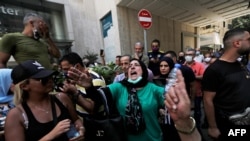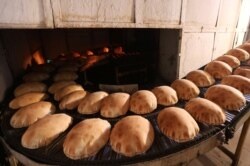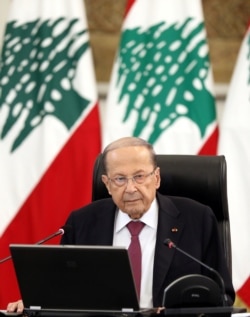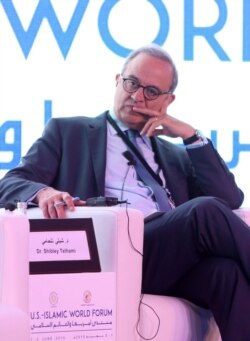The Lebanese are battling hunger and deep poverty as their political leaders wrangle with the International Monetary Fund over reforms to secure a $10 billion initial bailout aimed at redressing the nosediving economy.
The price of bread, a basic staple in Lebanon, has risen for the first time in eight years.
It’s the latest troubling sign that the Mediterranean country's financial crisis is spinning out of control, say analysts and a prominent religious leader.
Many Lebanese are resorting to growing their own vegetables, bartering clothing and furniture, and in some cases stealing, just to feed their children.
Dramatic public suicides are more frequent. Analysts say that at least 50% of the population has fallen into poverty and that the number could top 75% by year’s end due to the currency collapse, inflation, and unemployment. The Lebanese pound has lost 80% of its value since October.
Accusations of mismanagement and corruption have plagued the government. President Michel Aoun has said a forensic audit of the central bank's accounts is necessary to fight corruption.
Jihad Azour directs the International Monetary Fund’s Middle East department. He says the IMF team trying to negotiate with Lebanon’s government for more than two months believes there’s no more time to waste on starting reform measures to protect the most vulnerable.
“The acute financial crisis has led to a severe social situation with a level of inflation that is unsustainable,” Azour said. “What is needed is a unity of purpose, as our managing director said, behind those reforms, moving fast, and regaining confidence because where you start first is to regain confidence.”
The United States is the largest donor to the IMF. Washington would like any bailout funds to be conditioned on power held by Hezbollah, the Iranian-backed Shi’ite militia, which is in government and parliament, to be diminished. The United States classifies Hezbollah as a terrorist organization.
Lebanon’s powerful Catholic cleric, Cardinal Bechara Rai, has accused political leaders of plunging the nation into economic ruin and potential famine with their handling of the crisis. He has called for Lebanon’s neutrality in sermons, seen as an implicit criticism of Hezbollah and its support for Iran in conflicts with Gulf Arab states and elsewhere.
Speaking in an economic forum sponsored by the Carnegie Middle East Center in Beirut, where he is a director of studies, former Jordanian Foreign Minister Marwan Muasher warns that Lebanon’s political forces are postponing the inevitable reforms required to tackle the country’s worst economic crisis since the 1975-1990 civil war.
“They cannot go on with business as usual,” Muasher said. “The international community has a responsibility to help Lebanon. But the Lebanese, themselves, have the biggest responsibility to understand that they are not just protecting their country, but they are protecting diversity in the region. I hope the political forces in the country wake up before it is too late.”
Muasher said Lebanon is one of the last places in the region where political, cultural and religious diversity has been exercised. But if that is lost, he added, it won’t only affect Lebanon, but the whole Middle East.
Hezbollah leader Hassan Nasrallah has said that Lebanon would look to China for help. But later he said that Hezbollah would be open to receiving help from the U.S. despite calling it “an enemy” of Lebanon.







